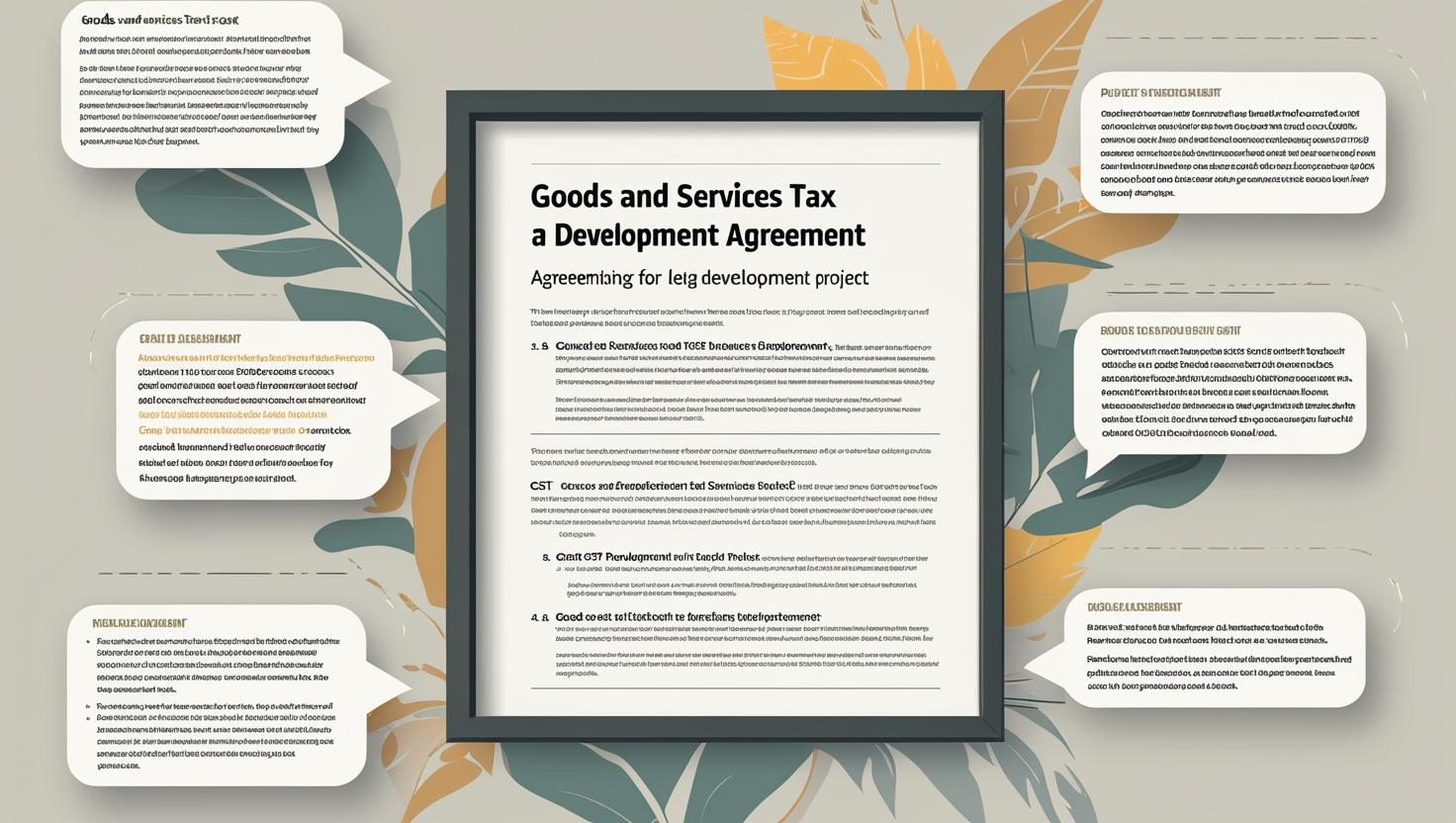GST on Joint Development Agreement (JDA) is charged at 18% on the value of the contract. A JDA is a contract between a real estate developer and the landowner to build projects on the latter’s land. As per the contract, the landowner provides the land, and the developer manages the construction side of the project.
Three types of transactions can occur in every JDA, and accordingly, the GST is applied to those transactions:
- When the landowner transfers development rights to the developer — wholly or partly in the form of construction service
- When the developer transfers construction services to the landowner – wholly or partly in the form of a transfer of development rights
- Sale of the developed area by the developer or landowner

For Transfer of Development Rights by Landowner
For Residential Projects
Before March 2019: If the parties entered the JDA before March 31, 2019, the landowner needs to pay 18% GST. The value on which GST is charged is determined by Rule 27 of CGST Rules and Section 15 of the CGST Act of 2017. The concerned party has to pay the tax on the constructed building’s date of transfer of possession.
For example: If the landowner has property worth Rs.1,00,000, they would have to pay Rs.18,000 (18% of 1,00,000) on the property’s date of transfer of possession.
After March 2019: However, if the parties entered the JDA on or after April 1, 2019, the GST should be discharged by the developer under the reverse charge mechanism. In this case, a GST of 1% is levied for affordable housing and 5% for non-affordable.
The developer has to pay GST on a reverse charge basis at the applicable rate. The value on which the GST is charged is based on the value of development rights of residential apartments — only for the apartments that remain unbooked on the date when the completion certificate was issued or the first apartment was occupied, whichever is earlier.
In mathematical terms, the value is
Value = GST payable on developmental rights * carpet area of apartments unbooked as of the date of the completion certificate / total area of the apartment.
Moreover, the payable tax should not exceed 0.5% or 2.5% of the value of remaining unbooked apartments. This tax must be paid on the date of the first occupation of the apartment or the date of completion, whichever is earlier.
For example, the residential property comes in the affordable range at Rs.20,000. Then the landowner will pay 1% GST or Rs.200 – either when the completion certificate was issued or when the first apartment was occupied.
For Commercial Projects
Before or after March 2019: For the transfer of development rights by the landowner, the landowner needs to pay 18% GST. The value on which GST is paid is decided per CGST Rule 27 and Section 15 of the CGST Act.
For example, say the value of a commercial building is Rs.10,00,000, then the landowner will have to pay 18% GST or Rs.1,80,000. The GST remains the same whether the deal was signed before or after March 2019.
Transfer of Construction Services by Developer to the landowner
For Residential Projects
Before March 2019: The developer pays 12% GST on this transaction. The value on which the GST is paid is determined as per Section 15 of the CGST Act and CGST Rule 27. Also, the GST is 12% if the developer pays under the old scheme. Otherwise, under the new scheme, they must pay 1.5% GST for affordable housing or 7.5 non-affordable.
For example, under the old scheme, the developer will pay 12% GST on a building worth Rs.1,00,000. This means the developer will have to pay Rs.12,000.
On or After March 2019: The developer pays 1.5% GST for affordable properties or 7.5% non-affordable on the value of service determined as per the amount charged from the independent buyer. The liability to pay this tax arises on the first occupation of the project or the date of completion, whichever is earlier.
For example, assuming the property is non-affordable at Rs.50,00,000. The developer will have to pay 7.5% or Rs.3,75,000 in GST.
For Commercial Projects
Before or After 2019: For construction services rendered by the developer to the landowner, the developer needs to pay 12% GST. Section 15 of the CGST Act, read with CGST Rule 27, determines the supply’s value. The payment has to be made on the date of transfer of possession by entering into a conveyance deed.
After March 2019: Again, the developer pays 12% GST. The value of the service is determined depending on the amount charged to independent buyers nearest to JDA. The liability to make payment is liable on the date of first occupation or completion of the project, whichever is earlier.
For example, say the value of the commercial property is Rs.100,00,000. Before 2019, a developer would have to pay Rs.12,00,000 in GST on this property. And if they charged the same amount to independent buyers, they would have to pay Rs.12,00,000 in GST after March 2019. GST would vary depending on the value of the service.
